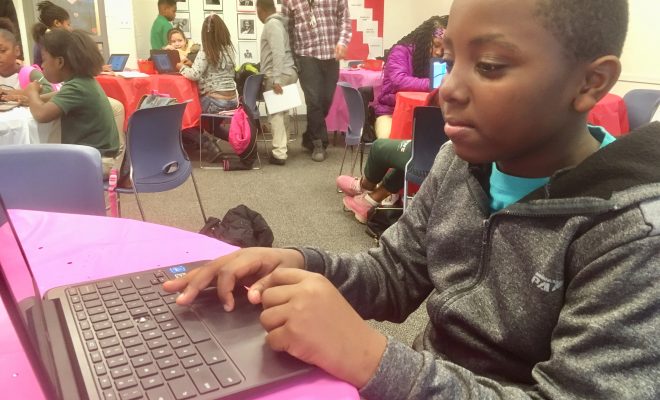Digital Doom? 3 Effects of Texting and Tweeting on Students’ Writing Skills

Internet and cell phone cultures have brought a whole new meaning to American slang. Not only are kids these days speaking informally, but now those relaxed rules of grammar are sneaking into written words too.
This is probably not surprising at all, but do you know just how much this culture has affected our students’ writing skills? Fortunately, I have three research-backed results to show you.
1. Students can no longer tell the difference between formal and informal writing: The Pew Research Center’s Internet and American Life project asked middle and high school educators about their thoughts on digital tools and the impact on student writing. The biggest problem with these digital avenues of composition, according to surveyed teachers, is the blurring of lines between formal and informal writing. Abbreviations are common, particularly on platforms like Twitter that have a 140-character limit. Most smartphones now have no limits on texting characters, but students that owned phones with the 160-character limits of just a few years ago have already formed short, abbreviated habits. In the digital realm, short and sweet is the key – even if a grammar, punctuation and writing formalities fall by the wayside. The same is not true of educational writing pursuits though, as K-12 writing instructors must prepare students for the demands of strong, professional writing in college and the workplace.
2. But at least they are more creative: Over two-thirds of the respondents said that writing platforms provided through Internet and cell phone use have improved student creativity. Students also have more outlets for collaboration which encourages improvement and “putting it out there” in terms of writing that may have been closeted to notebooks or diaries in pre-Internet generations.
3. Even after graduating college, young adults cannot write. A report released by the Partnership for 21st Century Skills found that over 26 percent of college graduates have deficient writing skills. These findings were not based on graduation assessment exams, but compiled by interviewing actual employers. These employers said that many college-educated employees could not even accomplish the basic writing tasks of the job proficiently. How are these students earning college degrees if their writing is not up to par though? With the average U.S. student accruing $35,200 in college debt, it would seem learning the basics of writing, at least above a “deficient” level, would be a given takeaway.
The deficiency is not the fault of the colleges and universities though, at least not totally. Students are showing up for college without the skills needed to write well and with schools assuming they already know the basics. The 2011 book Academically Adrift found that less than half college students felt their writing had improved at all in college. Less than half also said they were never required to write a paper longer than 20 pages. In a nutshell, the writing proficiency that half of these students exhibited as seniors in high school was the same four years later, despite the so-called rigors and high cost associated with a college education.
While colleges could certainly take a hint from these numbers, the work of remedial writing education is not the responsibility of colleges. It falls on the teachers that come long before the adult years. These teachers face an uphill battle though, especially in an age where formal writing is often confused with everyday communication. The tools for creativity in the writing process may be better than ever, but the constraints of digital communication are hurting students’ composition and their attention spans too.
How can students who have essentially made a lifestyle of short, segmented, slang-ridden writing conform to the formal communication still expected in the real world? It starts with teachers who set high standards and do not waver. In the long run, the fear of losing a student’s interest by insisting on high writing standards is a small one compared to the implications of college graduates viewed as writing-deficient by the people who sign their paychecks.
How can K-12 teachers win out against the negative impact of digital communication on formal writing? Please share your thoughts.




